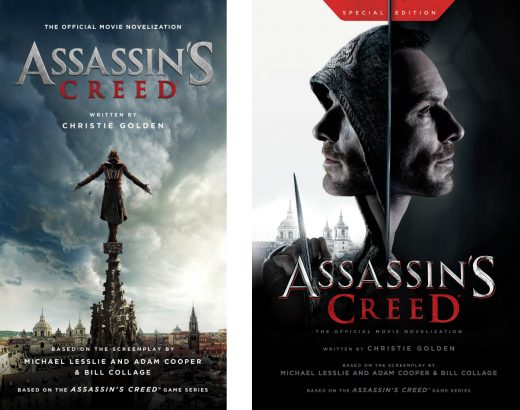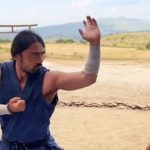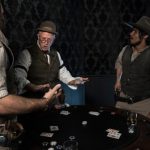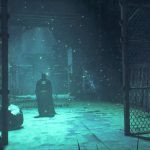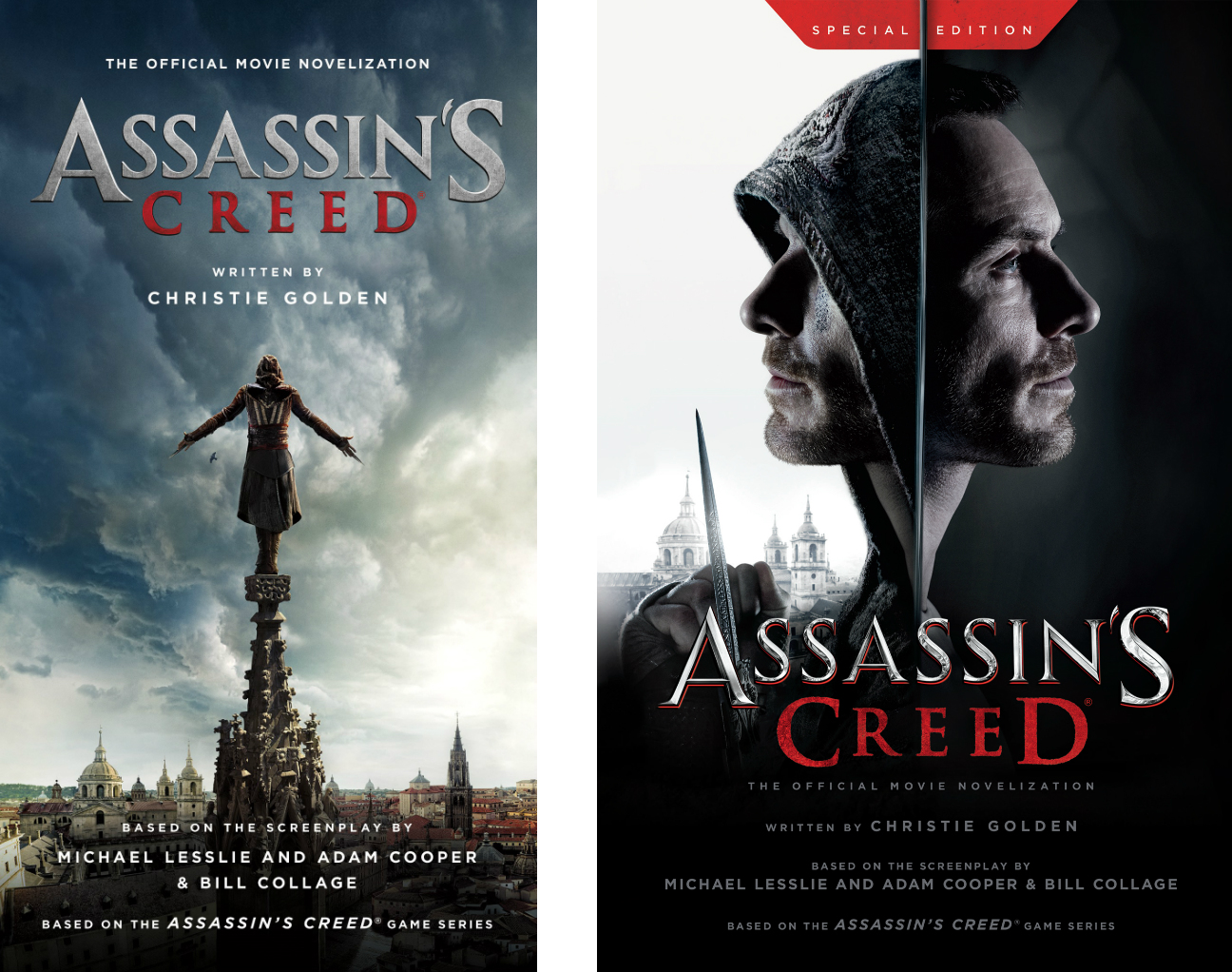Assassin’s Creed Heresy – Q&A With Author Christie Golden
Assassin’s Creed Heresy – Q&A With Author Christie Golden
Christie Golden is an award-winning author whose works have appeared on the New York Times bestseller list eight times. She’s also the creative force behind several novels set in the Assassin’s Creed universe, two of which – Assassin’s Creed Heresy and Assassin’s Creed: The Official Movie Novelization – were released this year by Ubisoft’s in-house publishing label. Contributing to a universe like Assassin’s Creed, with its many moving parts and heavy reliance on historical research, seems like a challenge – so to find out more about how she approached it, we chatted with Golden about her creative process, her thoughts on the Assassin-Templar conflict, and her admiration for one Joan of Arc.
How did the story of Heresy take shape and evolve? Did you set out initially with the idea of telling a story about Joan of Arc?
 Christie Golden: We knew a couple of things going in, the Ubisoft team and I. We knew that they wanted me to do something that kind of flipped what we all thought about the world of Assassin’s Creed on its head, by saying that we’re going to try and show some of the Templars. So I knew that going in was going to be kind of a big thing. And the other thing they told me was to just think about periods of history that I was interested in, and to come in with some ideas. So I came in with ideas, and we narrowed it down to five ideas that would be pretty exciting to me to work with. And of course, Assassin’s Creed has so many stories and so many different time periods that a couple of my favorites were already addressed, which was kind of a bummer. But we all got very excited about the idea of Joan of Arc, and the more we talked about it, the more it seemed to fit into the world really, really well. And it also provided a way to parallel what was going on in the historic aspect of the book along with what was going on in the contemporary aspect.
Christie Golden: We knew a couple of things going in, the Ubisoft team and I. We knew that they wanted me to do something that kind of flipped what we all thought about the world of Assassin’s Creed on its head, by saying that we’re going to try and show some of the Templars. So I knew that going in was going to be kind of a big thing. And the other thing they told me was to just think about periods of history that I was interested in, and to come in with some ideas. So I came in with ideas, and we narrowed it down to five ideas that would be pretty exciting to me to work with. And of course, Assassin’s Creed has so many stories and so many different time periods that a couple of my favorites were already addressed, which was kind of a bummer. But we all got very excited about the idea of Joan of Arc, and the more we talked about it, the more it seemed to fit into the world really, really well. And it also provided a way to parallel what was going on in the historic aspect of the book along with what was going on in the contemporary aspect.
This isn’t your first time writing an Assassin’s Creed book, as you’ve also written Blackbeard: The Lost Journal and the Abstergo Entertainment Employee Handbook. What do you find most compelling about the AC universe, and about returning to that universe to tell another story?
CG: When I did the Insight Editions books, it’s interesting because I did two for them, and I got to focus almost completely on history in the one, and then almost completely on the contemporary storyline in the other. I’m a big history buff, I love history. So one of the things that I really appreciate about working with Assassin’s Creed is they take the history very, very seriously. And it’s accurate – when I started doing my own research on Blackbeard, for instance, I found that the character they created for the game was solidly verifiable by my own research into history. That really, really excites me, because I like to know that when I’m working with someone, they do their homework. They certainly do that.
The other thing is, it’s kind of fun, the whole Illuminati angle with the Assassins and Templars and contemporary society today is a pretty fun concept. I really enjoyed both aspects of working in the world, both the history and contemporary story.
What’s your favorite part of retelling Joan of Arc’s story?
 CG: I’ve always been interested in her, and I’ve wanted to address her in writing for some time now, maybe maybe about 5 or 10 years. She’s absolutely fascinating. She doesn’t need a fictionalized treatment to have an amazing and almost unbelievable story. There were things that happened, and things that are coincidences – question mark, right? – that are just astonishing! And even if you take away everything from her, if you choose not to believe that she was inspired by God, if you choose not to believe – as you probably shouldn’t – that she had a Piece of Eden, if you just look at the fact that this farm girl came in with military strategies that worked, that startled men who had been doing this for 20 years or longer, it’s really just quite amazing. And the more I worked with her, the more inspired by her I became, and the more I admired her. So it wa really fun to treat her in this way, and to see how well she actually fit into this particular universe. Her story just dovetailed right along with the things we know about the Assassin’s Creed universe. So it’s a real honor, honestly, to be able to tell this story.
CG: I’ve always been interested in her, and I’ve wanted to address her in writing for some time now, maybe maybe about 5 or 10 years. She’s absolutely fascinating. She doesn’t need a fictionalized treatment to have an amazing and almost unbelievable story. There were things that happened, and things that are coincidences – question mark, right? – that are just astonishing! And even if you take away everything from her, if you choose not to believe that she was inspired by God, if you choose not to believe – as you probably shouldn’t – that she had a Piece of Eden, if you just look at the fact that this farm girl came in with military strategies that worked, that startled men who had been doing this for 20 years or longer, it’s really just quite amazing. And the more I worked with her, the more inspired by her I became, and the more I admired her. So it wa really fun to treat her in this way, and to see how well she actually fit into this particular universe. Her story just dovetailed right along with the things we know about the Assassin’s Creed universe. So it’s a real honor, honestly, to be able to tell this story.
Is there a real-life foundation for the historical protagonist, Gabriel Laxart, or is he completely fictional?
CG: The character of his father, Durand Laxart, is true. He was a distant relative of Joan’s, and she came to him and he took her up to this walled city to talk to the people there, and he really did exist. Gabriel is [Durand’s] bastard child, so he does not exist, but a lot of the things that we see Durand, his father, doing, are completely documented. He actually did testify at her redemption trial.
How did you go about your historical research? Did you discover anything while researching that pushed the story in new directions?
CG: I found so much! My knowledge of her was just in passing – most of us, when pressed, can say we know a little bit about Joan of Arc, and I might have known a little more than most. We are so lucky. She has two trials: one was the condemnation trial, where she was found guilty of heresy and was burned. The second was a trial about 20 years on that exonerated her. And we have the documentations from both of these trials, and we have so many primary sources – like I said, Durand, who took her on a couple of her journeys, and other people, the people she worked with. The duke, La Hire, these people did have testimony, and there’s documentation about what they said about her.
It really kept inspiring me to find new ways to plug in this particular incident or that particular incident. And one of the pitfalls, of course, when doing history is to know when you’ve done enough research. Because you always think, “I could do something more, and then the book will be even cooler,” and unfortunately you don’t really get to put in everything that you’ve learned. You can only learn enough so that you know it so that you can write about it, and there were a lot of things we did have to leave out just because they didn’t serve the story pacing. They were fascinating, they were interesting, and they were cool, but they didn’t work to move the story forward. And when you’re doing historical fiction, the story does have to be paramount.
Switching focus to the modern-day storyline, why tell it from a Templar perspective rather than an Assassin?
CG: Just speaking from my opinion on what Ubisoft thinks… it’s such a rich world, and while it’s fun to tell the games’ stories from this perspective that players have gotten so used to, there’s so much there that a book can go into – layers of gray and subtlety – that a game can’t. Nobody’s all black or white, and I love the shades of gray. That’s always where my interest has been. It was really fun to approach Templars, and think, “Where would they be a little more complicated?” We have, with the character of Simon Hathaway, someone who’s a legacy. He’s got a Templar heritage, and he’s very proud of that heritage. But he’s also a reasonable person, and the more he gets drawn into this and starts to see the other side, and see that “hey, we weren’t always the good guys, and they weren’t always the bad guys.” And of course, the mystery – and I don’t want to spoil anything – but the mystery as it unfolds is leading him to believe that things really aren’t as he always thought they were.
This is one of the first books Ubisoft is publishing under its own banner. How did the experience of working with Ubisoft differ from other publishers?
CG: For one thing, I think they were a lot more accessible. A lot of [publishers] are institutions, and they’re off doing their thing and you don’t generally interact with them that much. So I think [Ubisoft was] a little more accessible, and they were a little more open to some back-and-forth things, which was quite pleasant.
There are a lot of references to other Assassin’s Creed fiction in Heresy, including Last Descendants and the character of Victoria Bibeau. Were you specifically encouraged to acknowledge other works, and did you coordinate with the authors while you were writing?
CG: I actually created [Victoria] for the Abstergo Entertainment Employee Handbook that I did with Insight Editions. She’s a very minor character, we only get to know her through memos and notes and things like that. But the author of Last Descendants took her and developed her from what I had done, and then I got to take what he had done and add on to her. So it was really cool. This is one of the fun things about shared worlds, is that you can work with the same character and help that character’s evolution. It’s pretty neat. But yes, I was provided with information about things, and as someone who was doing the novelization of the movie, I also knew what was going on in that, and I could lay some little hints here and there to set up what the movie was going to be. It’s nice, I think, because it adds some depth to it, and some richness, to think that there’s many other things going on. And it’s even cooler if people pursue those other things. There’s so, so much more out there that you can draw from or contribute.
Can you tell us a little about the novelization? What did you know about the movie when you were initially approached about the project?
CG: I did not know anything about what the movie was going to be when I was approached for it. It was at the same time as Assassin’s Creed Heresy, kind of a joint deal. I did get to see a viewing of it, and I was able to get the script so I could keep referencing it. And that was pretty exciting, to be able to know what was coming and to weave a little bit back and forth. In the novelization, there is even a very subtle mention of Simon Hathaway in it.

Being a novelization, it doesn’t necessarily have to be a scene-for-scene retelling of the film’s events. Without going into too much detail, what are some of the differences fans can expect to see between the novel and book? Is there anything the book will go into more detail about?
CG: The nice thing about a novelization is that often we can add scenes that were later cut, or we can expand on scenes, and we can get inside the characters’ minds. I did not see the final-final-final version, so I’m not sure, there might be more cuts coming. I was very lucky; a lot of the time, people who do novelizations just get the script, so they don’t have a chance to see very much of it, so sometimes there’s a bit of a disconnect. But I really think this will feel very true to the film.
One of the nice things – this isn’t too much of a spoiler, because I’ve seen some things about this on the Internet – but there are other Assassins other than Michael Fassbender’s character in the movie. And so of course, they too have histories, ancestors that they have lived through. And one of the things that we did to make this feel like a bigger world, was I wrote four short stories that are included in the novelization based on these characters. And a lot of them are going to be very easily recognized by some of the fanbase, and hopefully for people who are new to the franchise, they’ll read some more about this and be inspired to check out the game.
What do you see as the heart of the Assassin’s Creed movie story? In adapting this, what stood out as something you needed to preserve, that needed to come through in the narrative?
CG: Really, the dynamic between Sophia [Rikkin} and [Callum Lynch] was fascinating to me, because it’s not necessarily what you think it’s going to be. And these people are not necessarily who you think they’re going to be when we are set up to them. The movie, I think, is actually really damn good, and I continued to enjoy it even though I was working on it very intimately, and I’m hopeful that viewers will think so. They’re two marvelous actors, of course. And Jeremy Irons, yay! He’s great, he’s wonderful, it was great to write [Alan] Rikkin with his voice in my head for Heresy. That was a lot of fun. But Sophia and Cal are really, really interesting, and there’s a connection and tension between them that I think will surprise a lot of people. It’s an intelligent script, and the actors are just so magnificent, and they’ve really got this connection, this energy between them. And I think viewers are really going to enjoy watching that play out.
Is there anything you took away from the process of writing these books that’s important for fans to know about?
CG: Just that I hope I kept the standard, the flag high, when it came to the research. I really did make every effort to make sure that, where it wasn’t too stilted, I used Joan’s own words or the words of others that we have. The events may have an Assassin’s Creed spin on them, but they’re not just blotted out of the blue and not illogical. So I really hope people find that they enjoy both halves of it, that they enjoy Simon, who’s a very fun traveling companion for this book, and also the historical aspects of Joan. I hope people feel like they’re getting a twofer and enjoy the ride.
One last question: What’s your favorite Assassin’s Creed game?
CG: I think it has to be Black Flag. That’s the one that I was brought in on, and the one I studied the most, for Blackbeard. I just really loved it. I liked that this Assassin guy wasn’t necessarily someone you liked off the bat, but then you learned more of his story, you really did like him. I liked the use of these historical characters and how they wove in. So It think that’s probably my favorite, although… I have a serious crush on Arno Dorian.
Assassin’s Creed Heresy and Assassin’s Creed: The Official Movie Novelization are available now. For more on the books and movie, check out our previous coverage:
Assassin’s Creed Last Descendants – Q&A With Author Matthew Kirby
Assassin’s Creed Movie Official Novelization Now Available
Ubisoft In-House Publishing Team Brings New Assassin’s Creed Books to Life
The post Assassin’s Creed Heresy – Q&A With Author Christie Golden appeared first on UbiBlog – Ubisoft®.
(119)

